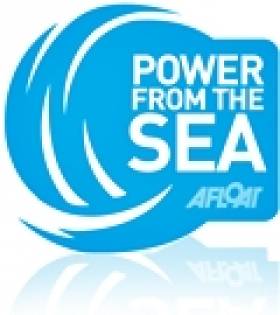Displaying items by tag: wave energy
Licences Sought for WestWave Energy Project
ESB International is seeking foreshore liecences to develop a new wave energy project on the west coast.
The Irish Times reports that the scheme is part of a strategy to generate 150MW of electricy from the sea by 2020, in tandem with the Government's target of 500MW in the same timeframe.
The company hopes to conduct marine surveys for its WestWave project - a collaboration with various wave energy partners - at Killard Point in Co Clare and Achill in Co Mayo, with a view to begin generating power as soon as 2015.
ESB International says the two sites were chosen after a “detailed selection process based on mapping studies, site testing, environmental considerations and stakeholder feedback”.
The project has already secured €4.5m in EU funding approved by EU commissioner for research and innovation Máire Geoghegan-Quinn.
The Irish Times has more on the story HERE.
Renewable Energy Firms Plan Tidal Array in Wales
Two renewable energy companies have applied for planning permission to install a tidal turbine array off the Welsh coast.
Energy Efficiency News reports that the 10MW array commissioned by RWE npower renewables would consist of seven SeaGen turbines from UK-based Marine Current Turbines (MCT), enough to generate energy for 10,000 homes.
The windmill-like turbines would be installed 1km off Anglesey in north Wales between Skerries and Carmel Head and be operational by 2015.
SeaGen turbines are already operating in Northern Ireland's Strangford Narrows, an installation accredited by Ofgen as Britain's first tital power plant. MCT is also working with ESB International on a 100MW project off the Antrim coast.
The Welsh Assembly has set a target of capturing 10% of tidal and wave energy off the Welsh coast by 2025 as part of its renewable energy plan.
Energy Efficiency News has more on the story HERE.
Scientists Await Data from Galway Wave Energy Test
The Irish Times reports that a number of European universities and research centres are eagerly awaiting the data from the latest wave energy test buoy deployed in Galway Bay.
Cork company Ocean Energy Ltd is behind the latest test and research platform, co-ordinated by the hydraulics and marine research centre at University College Cork.
The scheme has €4.5 million in funding approved by the EU and commissioner for research and innovation Máire Geoghegan-Quinn.
A recent study for Sustainable Energy Ireland suggests that ocean-derived energy could generate €9 billion in income and thousands of jobs in the next 20 years.































































